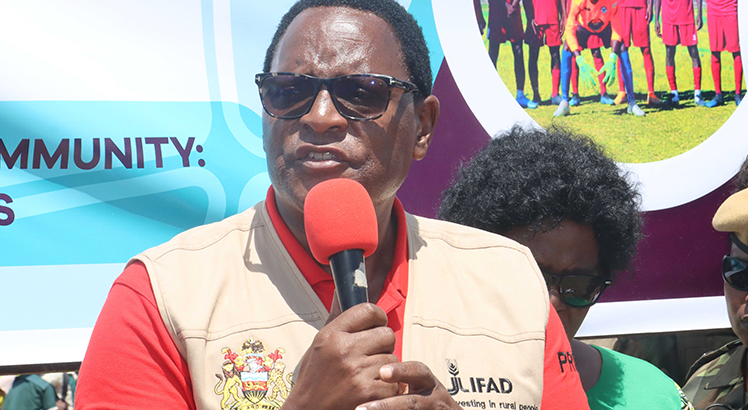Malawi AU match representative unfazed by change of venue
Malawi ambassador in the forthcoming African Union Summit football match Christine Selemani has maintained optimism about goals the ‘Lilongwe match’ was supposed to achieve, saying the change in venue has not deterred the objectives of the campaign.
The much-touted match, dubbed ‘Lilongwe Unity match’, was supposed to be played on the sidelines of this year’s African Unity (AU) Summit Malawi was supposed to host.
The event has since been moved to Addis Ababa due to the controversy surrounding the attendance of Sudanese embattled leader Omar Hassan al-Bashir.
Former Africa’s football greats Cameroon’s Patrick Mboma and Nwankwo Kanu of Nigeria will each lead a team comprising persons of various profiles in the match that was not necessarily targeting established football players, but those who can ably advocate for change in their countries.
In an interview on Wednesday, Selemani, who organisers say had to see off a challenge from “a host of applicants†through Facebook and Twitter social networks, said she is not fazed by the change, adding that she will still ably advocate for issues in Addis Ababa on July 9, the day scheduled for the match.
“I know the issue is a bit complex, but the campaign still goes on whether in Malawi or any other country. However, I cannot blame the government for the move it took,†she said.
But she still bemoaned the shift, calling it a missed opportunity for Malawi in many aspects.
Selemani revealed her passion in participating in the campaign by saying she is more perplexed by challenges that African women and children still face amid countless forums that discuss their welfare.
She also expressed sympathy for the decision government took in letting the Summit go elsewhere.
Oxfam’s Pan African Programme initiated the match under its Play for the Union Campaign, as part of the wider mobilisation strategy of the State of the Union Coalition as a tool to encourage citizen participation in pressuring their governments to implement the Treaties and Protocols that they have signed.





